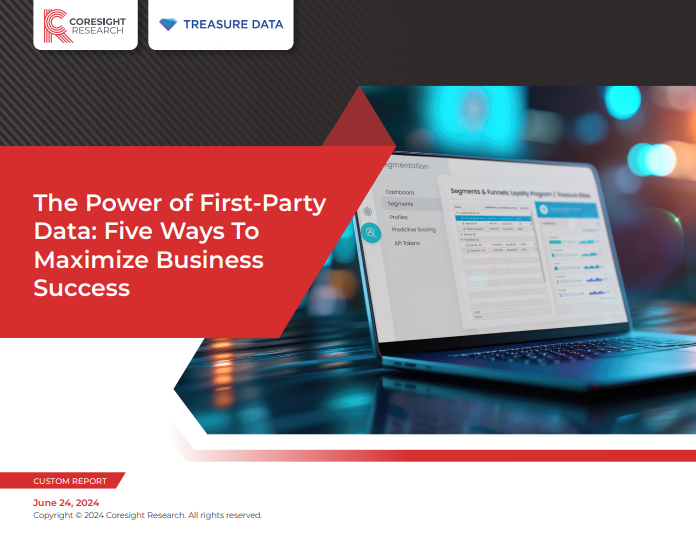There are brands, and then there are BRANDS (the muscular, swashbuckling, energetic superstars who use Artificial Intelligence)… ChatGPT4, DALL-E, and other generative AI and Large Language Models (LLMs) have given people and their favorite brands to connect at a different level altogether. And, brands want more from these B.R.A.ND.S. The latest survey of 4000 US and UK-based shoppers revealed alarming GenAI online shopping trends. Shoppers expect their favorite brands to showcase GenAI online shopping recommendations and assistance throughout their buying journeys. Let’s find out more in this Martech intent news.
Online or e-commerce brands have embraced GenAI-led capabilities to transform marketing and advertising campaigns. Top brands had a clear vision to adopt AI for personalization while seismic shifts in consumer online behavior occurred during and post-COVID. For a digital marketer (especially, if you are in the retail industry), generative AI technology is a game-changer. Popular consumer-facing brands use GenAI to craft tailored experiences for their consumers and fans. Most online brands have adopted an AI-first approach to improve the shopping experiences for their customers. So, it’s natural to believe marketers have developed a natural affinity toward GenAI experiences.
Top Martech Story: Introducing AI-amplified MarTech Suite: Infosys Aster
But have you ever guessed what shoppers want from GenAI while shopping with their favorite brands?
According to Coveo, 7 out of 10 shoppers expect their brands to deliver responsive online shopping experiences using GenAI. AI can provide accurate product information, recommendations, and pre-purchase assistance on features and attributes. Consumers are willing to share their personal data with the shopping platforms to extract AI benefits during their shopping journeys.
49% of shoppers face problems shopping online. Coveo’s 2024 Commerce Industry Report also found that 91% of online shoppers expect their e-retail experiences to at least match the in-store experiences. Retail marketers have a huge gap to fill to improve online shopping experiences. GenAI online shopping technologies can come to the rescue at different stages of buying starting from the first touchpoint to product selection to order confirmation and finally, at payment.
Innovations in Dynamic Pricing Models Drive GenAI Online Shopping Trends in 2024
Consumers prefer to shop with brands that provide multiple options online, especially real-time price comparison and deal alerts. For instance, dynamic pricing and virtual assistant-led product selection are among the top consumer demands. Some brands are already offering conversational AI services through chatbots. 25% of online shoppers would use a GenAI intelligent virtual assistance (IVA) to surf through shopping galleries. According to a report, 40% of online shoppers who have used GenAI to improve their shopping experience already advocate the benefits of AI-powered real-time price comparison and deal alerts.
As AI’s presence in retail and e-commerce grows, brands can provide more shopping channels and discounts to acquire and retain customers across all age groups and geographies. Infosys’s report found 54% of retailers use AI to reduce costs and 64% use it to boost revenue streams. AI’s convergence at the buy and sell side of retail online shopping will empower marketers and consumers to test new ideas and explore innovative avenues to do business.
GenAI Online Shopping Trends: Latest Updates
Retailers are investing heavily in GenAI technology innovations and upskilling their existing workforce. In a survey of 3500+ marketers, 57% of respondents who use AI say the technology is absolutely or very essential to create one-to-one experiences with customers across every touchpoint.
For example, Target launched an AI tool called Store Companion to improve team collaboration and on-the-job training processes for in-store managers and executives. This in-store experience management technology is already implemented in Target’s 400 stores. We can expect an online version of this technology very soon.
Likewise, Walmart is using AI in retail to improve product suggestions and personalize catalogs to ease pressure during the busier times of the year, such as national holidays, music festivals, Super Bowl, elections, etc.
Intent Amplify’s MarTech Intent research team has curated the top 5 use cases of brand-driven GenAI technology for the readers. Here’s the list:
BMW

Earlier this year at the CES 2024, BMW Group demonstrated a new generative AI capability integrated into augmented reality (AR). The BMW Intelligent Personal Assistant responds to passengers’ queries using AR glasses and an LLM-powered AI model called Alexa. This generative AI for in-car voice assistants “gamifies” the experiences by integrating with third-party apps for music, news, magazines, and games.
Lenskart.com

Lenskart.com, a popular eyewear brand uses computer vision AI technology to improve store and in-app user experiences across all its product offerings. In fact, the India-based eyewear player is one of the leading AI users that has automatized its entire product line as part of total digital transformation starting from its manufacturing and eye-testing units.
Coca-Cola

Iconic brand Coca-Cola needs no introduction to state it’s among the leading generative AI users. In the holiday season, the company harnessed the power of AI to deliver “Real Magic” to its fans and followers. Fans could create personalized greeting cards, email templates, banners, and other digital assets using Coca-Cola’s nostalgic images, characters, and tunes.
The AI experimentation did not stop there. Coca-Cola reimagined the the Year 3000 by bringing AI-generated flavors and experiences, inspired by feedback from customers and fans. The Y3000 would go down in the history as the most engaging genAI brand experiences along with Real Magic.
LVMH Moët Hennessy Louis Vuitton
After cars, beverages, and eyewear, our team turned to the invincible luxury titan brand LVMH Moët Hennessy Louis Vuitton to study their AI experiences for customers and partners. The luxury retail brand partnered with Google Cloud and Alibaba Cloud to transform its frontline sales and marketing operations, in addition to upgrading its existing IT infrastructure. An announcement made earlier this year mentioned LVMH’s mission to bring in AI as a key catalyst for accelerating AI and data literacy of its executives and workforce.
Our detailed analysis of LVMH’s AI for retail strategy found the shift in focus to improve in-store and online shopping experiences using enhanced targeting and product alignment. The brand has also announced steps toward using AI for advancing environmental stewardship and sustainability.
Amazon
From Alexa to Prime to Pay to Music, Amazon’s AI use cases bea the trends hands down! Yes, Amazon online shopping trends in the last few years have shown a constant embracement and improvement with advanced AI technologies such as NLP-based product search and discovery, product segmentation, voice-activated search and payments checkout, and facial recognition. With Amazon’s Prime Day hysteria back in focus this July, our Martech Intent research team is expecting innovative brand experiences for online shoppers.
Brands + Humans: Future of GenAI Online Shopping
After studying 500+ brand stories and their experiences with AI tools to improve customer success and sales, we can predict the future belongs to AI influencers and virtual influencers, or V-Tubers. Yes, these exist! And, consumers love shopping from brands with V-Tuber avatars and AI influencers engaging with them on YouTube, Instagram, TikTok, and Spotify. Retail brands such as Versace and others with high marketing and advertising budgets are already ahead of the race. Others could explore innovative channels such as in-app gaming experiences using AI influencers, and audio podcasting to meet shoppers where they are most likely to convert into paying customers. From motor racing to Super Bowl to MMA, it doesn’t really matter where brands are selling. It all boils down to answering “how” and “when” using AI and human connections. That’s where the GenAI online shopping trends in retail and e-commerce are heading to in the next 2 years.







